Watching China Watching (XIV)
The Man With the Key is Not Here 管钥匙的人不在 offers ‘Sixteen Chinese Key Words’ (pun intended), or ‘Everyday Mantras’, and their layered meanings, that Chinese watchers of China know to be on the watch out for. China Watching does, above all, requires an ability to hear; one needs to understand what one is listening to or being told.
***
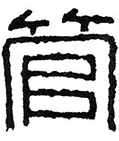
This booklet, originally published in 1990 by Xiao Mao and Nan-tzu (Karin Malmstrom and Nancy Nash) was aimed at providing ‘a key to what they really mean in China’. The words and expressions in it are gleaned from long years of observation and interaction, as well as being a decoction of the the myriad of frustrations experienced in dealing with the three realms of Official China, Everyday China and Translated China. This linguistic guidebook is humorous evidence that the obfuscations of formal Chinese — and the logorrhoea of New China Newspeak) — can take many forms. Nearly two decades after its initial appearance dictionary-cum-guide to basic Chinese expressions remains the most accessible and insightful short work on Chinese life, politics, culture and mores.
***
Apart from featuring here in Watching China Watching, The Man With the Key also appears in our Heritage Glossary. Parts of this work were previously reprinted in China Heritage Quarterly. The typographical style of the original — including Simplified Chinese Characters — has been retained. The artwork of the original was not available in the reprint edition of the booklet reproduced below. I have added a selection of Chinese characters, in various styles, as illustrative material.
***
I am very grateful to Karin Malmstrom for allowing China Heritage to reproduce this gem of a book, as well as to Richard Rigby and Michelle Garnaut. My thanks also to Callum Smith for designing the easy-access online format below.
— Geremie R. Barmé,
Editor, China Heritage
31 January 2018
The Man With the Key Is Not Here
管钥匙的人不在
Karin Malmstrom & Nancy Nash
Sixteen Enlightening Chapters (click on a title to go to the relevant chapter)
- MEI YOU(没有) Not Have
- BU ZAI(不在) Not Present/ To Be Out
- BU XING (不行) Not Possible/ Out of the Question
- MEI YOU WEN TI(没有问题) No Problem
- DENG YI XIA (等一下) Wait A Moment
- MEI YOU BAN FA (没有办法) No Way/ No Way Out
- MEI YOU GUAN XI (没有关系) It Doesn’t Matter/ There is No Relationship
- HAO(好) Good
- CHI FAN, XIU XI(吃饭,休息) Eat, Rest
- MEI YI SI (没意思) Not of Interest
- YOU YI SI (有意思) Of Interest
- BU TAI QING CHU(不太清楚) Not Too Clear
- KE YI (可以) Allowable/ Acceptable/ Possible
- DUI BU QI (对不起) Sorry/ To Excuse Oneself
- BU ZHI DAO(不知道) Do Not Know
- BU YAO KE QI(不要客气) No Need To Be Polite
Introduction
MEI YOU (没有) Not Have
It is always said; and it’s usually true that MEI YOU is the first phrase a visitor learns in China. So often is MEI YOU heard, it may be the only Chinese phrase many visitors remember. But MEl YOU can mean more than “Not Have” …

THE MAN WITH THE KEY IS NOT HERE — A KEY TO WHAT THEY REALLY MEAN IN CHINA is a Chinese/English dictionary with a difference. Chinese words and phrases most frequently encountered by both business and holiday visitors are here, complete with literal English and, written Chinese translations. (All Chinese romanizations are in the PIN YIN system). But this is also a handbook providing a sketchmap (what is said) compared to the territory (actual meaning) behind a Great Wall of many dimensions.
It is not possible to know which meanings in the following chapters apply to the individual situations in China. It is likely that in any given chapter and situation, one or more or “all of the above” as questionnaires offer participants, come into the equation.
Learning the possibilities of what is MEANT rather than what is SAID in China is as important to the visitor struggling to confirm travel reservations as to one concluding a multi-million dollar contract. A look behind the language Wall can also be illuminating, and enrich an experience even if it does not necessarily obtain the train seat or seal the business deal.
The co-authors and publishers take no responsibility for any eventuality that may occur as a result of the use of this book.
Foreword
GUSHI (故事) Story/Brief Introduction/Fable
Ancient China produced many Emperors, some Great, some Hopeless and sollie ma-ma-hu-hu (马马虎虎, horse-horse-tiger-tiger). During Great Dynasties, Peace prevailed and many Useful and Productive goods were Invented, such as Gunpowder and Paper, which are prominent Around the World even today. Also things of Surpassing Beauty appeared, Silk Cloth, for example, and Poetry Metaphor, apparently.
The Middle Kingdom’s history is so Vast and Wide, not all Emperors and their reigns are recorded, even after the Invention of Paper. Thus it was at some unrecorded stage of a murky period in history, an Invention which was to become Major in Modern Chinese Life made its entrance.
Legends portray the Emperor’s time as one of those Turbulent and Sorrowful eras, yet Ever Looking to a Bright Future. This is a well-known cycle in China, similar to that of the Indestructible Phoenix, a Chinese legend which is also known in countries Outside. (Still, the EXACT time is hard to pin down. This problem then and now is known as BU TAl QING CHU. Please see Chapter 12.)
Nevertheless, what transpired during this period of history profoundly influenced China Ever After. The Emperor’s name at birth and at ceremonies when he became a Son of Heaven, have never been found — an unfortunate but likely consequence of the Event during his rule.
People of the time, according to legend, found him Wise and Possessing Great Leadership while he occupied the Throne. Soon after he died, he became ma-ma-hu-hu, and then vanished rather like frost on roof tiles at sunrise.
During his reign, however, a Lowly but Diligent and Upright Yellow River Valley region Peasant, once watching the Moon’s Reflection on the (then) clean and clear River, was inspired to Subdue and Tame it (the river first). He studied, season after season, Flight of Cranes, Waxing and Waning of Moon, Springtime’s Green Growth, and All Manner of Natural, Mysterious Happenings, and reflecting on this over a Full Cup with a Friend from Afar, said:
“Destiny requires that I, a Lowly but Diligent and Upright Representative of the Ancient Working Class invent something which will be known Ever-After Around the World as A LOCK.”
And this he did, experimenting with metals and tools, exploiting the Rich Resources of the Great Motherland, taxing his Human Potential to the full. After many decades of Struggle, he produced a Lock.
This Masterpiece of Artistry and Practicality, although it was not designed to do so, included a couple of problems. First, the Lock did not Stop Rains on a certain schedule, Dominate Rivers or Change (for example) the course of Cranes Migrating and making Shadows on the Moon — all of which for some people then and now, are ‘Unacceptable events unless under Human Control.
Next, although the Lock was widely admired and increasingly employed, after some seasons passed, it was recognized that something significant was missing: The Key.
By that time, sadly, the Great Lockmaker’s descendants had, lacking proper Respect and seeking only their Security and Advantages, lost the Science and Technology involved.
A few generations passed, and then appeared during one of China’s Great Flowering Periods of Rich. Poetry, Expanding Commerce and Invention, another Representative of the Ancient Proletariat, who was, (although he did not know it at the time) Reactionary and Feudalistic.
He invented The Key. His descendants throughout the ages until The Current Situation — unlike the offspring of the discoverer of the Lock — have Vigorously preserved the Production, Distribution and Responsibility for Keys. Their numbers seem Vast as the Ocean: and High as the Loftiest Mountains, and there is only one problem: They are difficult if not impossible to find.
The Authors and Artist
Xiao Mao and Nan-tzu are the Chinese names for Karin Malmstrom and Nancy Nash, two American women who acquired considerable expertise concerning “keys” to working and traveling in China, starting with the country’s “opening to the outside world” in the late 1970’s.
Both women did what is called “pioneering” work there, in tourism, business promotion and international cooperation projects. They met on separate assignments in Yunnan Province in 1982, have enjoyed, suffered through and learned from many shared China experiences since then.
THE MAN WITH THE KEY IS NOT HERE was inspired by the art reproduced in this book which first appeared in The Wall Street Journal and the China Business Review in 1985, art and caption by Eugene Theroux, partner in the international law firm of Baker and McKenzie.
Theroux, whose brother Paul is the best-selling author of Riding the Iron Rooster: By Train Through China and many other major books, developed his satirical art through personal experiences gained on more than 150 business trips to China, including extended visits to establish his firm’s offices in Beijing and Shanghai.
In this first volume, the co-authors have collaborated to share with the “outside world” some glimpses behind the Great Wall of language.
Chapter 1: MEI YOU (没有) Not Have
- There are none.
- We have some, but are saving them for special customers.
- I cannot be bothered to find any because I have no incentive to do so.
- If you are persistant enough to hang around and ask a few more times, I may be able to locate some.
- We ran out; you should know to come earlier.
- That is never available, and if it were, it is only for display.
- Cannot help you; the Manager hasn’t given us the latest price list yet.
- Not available. The people supplying (it) have already fulfilled their monthly quota.
- Have, but the man with the key is gone.

Chapter 2: BU ZAI (不在) Not Present/To Be Out
- The person you wish to speak to is not here.
- I’m here, but I don’t want to talk to you so I’m not going to identify myself.
- The person you want to speak to is here, however is not prepared to see you yet.
- The person you want does not exist, you have dialed the wrong number/opened the wrong door.
- You’ve dialed the correct number, but the person you’re asking for has been transferred to another unit.
- I’m sorry I don’t know where he/she is;if you think to ask me, I will tell you.
- The man with the key is not here, and I don’t know when he’s coming back.

Chapter 3: BU XING (不行) Not Possible/ Out of the Question
- It is not possible.
- I don’t want to get into trouble with my boss so don’t dare to help you.
- Your request cannot be granted because there is too much red tape involved to organize it.
- We can’t do it because the price is not favourable.
- Because we can’t afford to be wrong, we cannot comply with your wishes.
- We want to do it, however we know that it is impossible so are saving us all some time and frustration.
- Obtaining the item you want is out of the question because the man with the key is not here.


Chapter 4: MEI YOU WEN TI (没有问题) No Problem
- There is no problem.
- Your problems have just begun but I don’t know how to tell you.
- Please have confidence that you will eventually arrive at your final destination.
- If we all believe that things will work out OK, then maybe they will.
- We know that we will be able to do/obtain this because we have direct access to the decision-maker.
- We have decided that we want to do this with/for you so have said “yes”, and await your return favour.
- Absolutely no problem because not only is the man with the key here, but we also have the current price list.

Chapter 5: DENG YI XIA (等一下) Wait A Moment
- A moment, please.
- I don’t know how long this is going to take, but just keep your place in line.
- I’m trying to do this for you, but first need to obtain approval from my superior in the back room.
- We need “time out” to hold a private meeting to discuss the situation among ourselves.
- What you’re saying doesn’t make sense.
- I’m stalling because I don’t know and need to get the answer from my colleague.
- We can’t tell you right now, and we can’t tell you how long you have to wait.
- Wait here while I go look for the man with the key.
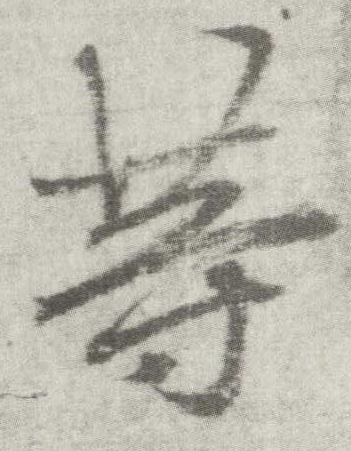
Chapter 6: MEI YOU BAN FA (没有办法) No Way/ No Way Out
- There is no way.
- I’m exhausted and don’t want to pursue the matter.
- I’m not the right person to talk to.
- I know the correct person to talk to, but it would take too much trouble to convince them.
- I’m bluffing. I want you to lower yourprice and will wait until you do so before discussions can continue.
- It’s already been done, so the situation cannot be changed.
- These are the rules so it simply IS impossible.
- The man in charge took the key with him and won’t be back before you leave so there is no hope to obtain what you want.
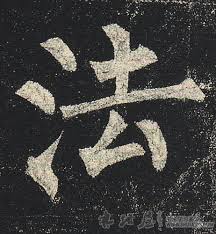
Chapter 7: MEI YOU GUAN XI (没有关系) It Doesn’t Matter/ There is No Relationship
- Don’t worry about it.
- What you’re talking about and what I’m referring to are not related.
- It really DOES matter but I forgive you because you cannot be expected to understand.
- The reason why you can’t get what you want is because you don’t know the right person.
- You SHOULD understand but since I’m the host, I’ll forgive you.
- It doesn’t matter because I can’t do anything about it anyway.
- I appreciate your understanding that the man with the key is not here.
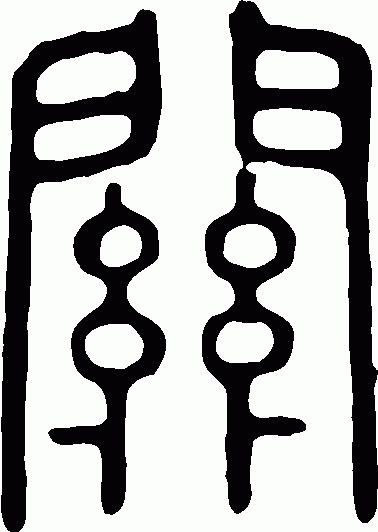
Chapter 8: HAO (好) Good
- OK!
- How’re you doing?
- I don’t agree but will go along this time.
- I’m relieved it’s been decided; this discussion was getting monotonous.
- Very excited to take you up on your offer!
- Sea Slugs and Fungus are GOOD for you, eat more!
- Good you accepted the proposal, otherwise no choice but to talk to your competitors.
- Happy to sell you this item because the man with the key has returned.
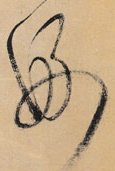
Ni Hao (你好) is a commonly heard phrase and means “Greetings/Good Day/How Are You?”
Chapter 9: CHI FAN, XIU XI (吃饭,休息) Eat, Rest
- Lunch Break and Siesta Time combined.
- You can be sure the guide will disappear for three hours (unless must catch a plane — delayed by some hours).
- Morning negotiations were SO exhausting that lunch together would not be feasible.
- There is nothing to see or do here because all the workers are eating and resting, so please do likewise.
- It’s 11:30 (!) and besides, bad timing on your part. Eat, rest, come back later.
- The man with the key went back home to eat and rest.
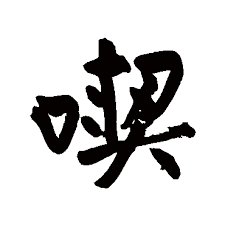
Chapter 10: MEI YI SI (没意思) Not of Interest
- It’s not of interest.
- It’s too small/inconsequential to be of interest.
- This activity is not going to better my situation so it’s a waste of time.
- I don’t want to get involved.
- You don’t understand how things work here, so stop hassling me.
- I’m sorry I didn’t think of that myself.
- I’m disgusted.
- Your persistance IS aggravating; how many times must I tell you that the man with the key has disappeared!
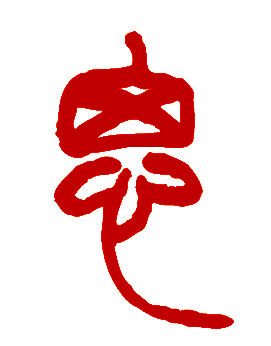
Chapter 11: YOU YI SI (有意思) Of Interest
- That’s interesting.
- Want to know more, please continue talking.
- How did you find that out; you’re not supposed to know.
- Uninteresting/unimpresssive but must be polite because you are the guest.
- How can I get more information without letting you know that I’m very interested.
- I’ve never seen/experienced this before, and still haven’t decided what I think about it.
- Do not continue; your behaviour is culturally unacceptable and you are embarrassing yourself.
- The man with the key has found something interesting; he’s not back yet.
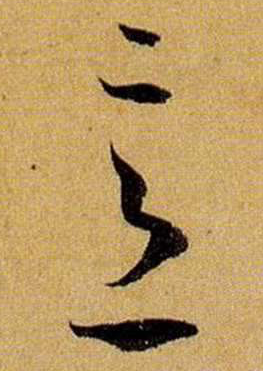
Chapter 12: BU TAI QING CHU (不太清楚) Not Too Clear
- I’m not sure.
- What language are you trying to speak?
- So sorry, just got on duty and wasn’t here the first time you asked.
- I know the answer but don’t have the authority to make the decision, so can’t say.
- I’m in charge but don’t have a clue what you’re talking about.
- You’re interrupting our conversation; please go away.
- Not sure how it got lost, and not sure how to find it, so it must be somewhere else.
- Don’t know what this item is/what you want, however the man with the key may know; I don’t know where he is.
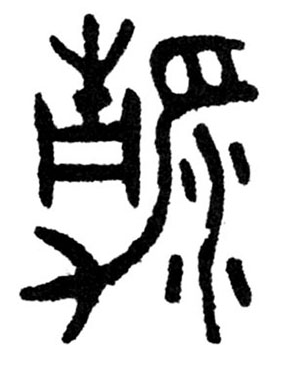
Chapter 13: KE YI (可以) Allowable/ Acceptable/ Possible
- It’s possible.
- It’s acceptable.
- I’m marginally impressed, but since there are no alternatives, it will have to do.
- I like what I see …
- Not bad! In fact, MUCH better than I expected.
- MUST have a contract and there’s no time to deliberate, just sign, please.
- This train station box lunch isn’t home cooking; I’m starving so will lower my standards.
- You can try if you like, but since the man with the key is not here and the door is locked, you probably cannot get in.
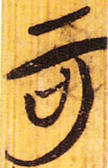
Chapter 14: DUI BU QI (对不起) Sorry/ To Excuse Oneself
- Excuse me.
- This line is getting longer, and I was ahead of you …
- It is customary to impart that the banquet food is inadequate and insufficient, and expect you, the guests, to unanimously praise the spread of scorpions, snake soup and deer tendons.
- Sincere apologies for showing up unannounced; we traveled three days by train to drop off these samples, and are now anxious to do some business.
- Of course that’s the right answer; just wanted to see if YOU knew.
- The plane is leaving; pardon our 25-member delegation while we squeeze by you.
- So sorry, you’re too late; the man with the key must close the doors.
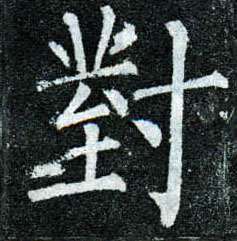
Chapter 15: BU ZHI DAO (不知道) Do Not Know
- It’s been a long day; I want to go home so don’t want to start a conversation.
- You’ve hit on something very sensitive; please don’t mind the blank stare while I try to steer the discussion elsewhere.
- I know, and would like to help you, but don’t have the authority, so can’t.
- That’s not my department, so I’m not required to know it, therefore, I don’t.
- Please go away; someone else must know the way to the Great Wall.
- I don’t know where the man with the key is, and don’t care when or if he returns.
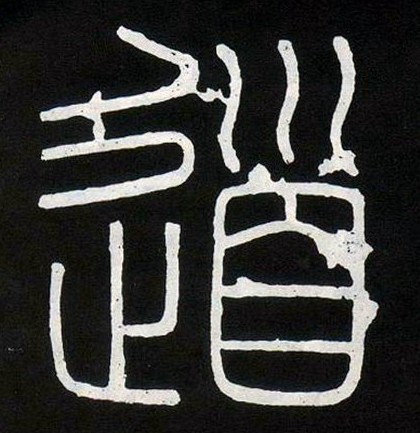
Chapter 16: BU YAO KE QI (不要客气) No Need To Be Polite
- Don’t mention it.
- Don’t stand on ceremony.
- We’re done with “small talk”; please start eating.
- It was a great effort on my part to get you this “soft berth” train ticket; I’m pleased you realize that you’re privileged.
- It’s my duty to be polite.
- No need to thank me profusely, I only brought you a wet towel and a fork.
- This negotiation room is locked and the man with the key is gone. Hopefully there’s another room available down the hall; please follow me.

Acknowledgements
Respect and tribute is here paid to the Chinese Classics, their authors and disciples, and the ideal that in brevity and short form may often be found the greatest depth. Adhering to the short form discipline does not allow anything like a full list, but it is essential to acknowledge gratitude for the insights and pleasures gained from the study of Zhuang Zi (庄子), Du Fu (杜甫), Li Bai (李白) Zhuge Liang (诸葛亮) and Cao Cao (曹操).
Starting several centuries ago, foreign scholars of China have produced studies of immense historical and entertainment value. Such a small volume as this cannot begin to list them, but they are acknowledged here with deep gratitude. Those alive today know who they are.
The authors would sincerely like to thank their many friends in China for patience and support during numerous projects and several years of work involving a unique Chinese combination of contradiction, confrontation and cooperation. In this work, provocative glimpses of the many and various meanings behind a simple word or phrase, led to this book. Also to be acknowledged are the people and situations. which forced some patience and learning on the part of the authors.
Next, for submissions, ready editorial help, and the light relief only possible to share with those who have also learned by first-hand experience:
Gene T.;Xian; H.R.; Hungry Phoenix; Kingfisher; E.Z.; L.E.L.; OO’R; Paul T.; M.B.; Sooz B.; Patrick M-L; Dr Michael Rong; Dr Bai Zhi Ang; Dr Li; Mym & Marteen; G.S.; G.S.; ASUPI; MMHMJ; L.B.; J K-H; TopCat; LKB; LMT; Bill G; Apple Crumble & Who P Mc; Poopo Fufu; Dr Don; Dashi and Furen; John Vandeleur; Bamfoo; Ms LR; D&B Ark; OH Hai; Dr. B.B.; P&P Sc.; SJP; D.S.; J Porpoise; W. (then) w.; MarRoth; S.E.; MSc.; Meli; R&J M; The Doge; L&I S.; DevK; MLD; Dr. Linsid; Drs Kenjohn; Dr. Hotsid; Dr. DR; Dear Delegations; Ms Milu; P.Comer; Friends L-A; J Howe; ToyBoy; Willy-Bob and Dallas Amigos; All DP Participants then and now.
* * *
Karin Malmstrom and Nancy Nash
ISBN 0-9626164-0-0
Published by Pacific Venture Press
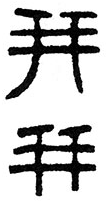
Editor’s Note:
All reasonable efforts have been made to contact the original publisher to gain permission to reproduce this material.
Particular thanks go to Richard Rigby for loaning me his ‘Little Red Book’ edition of The Man With the Key.
Richard has, during his fifty China years, lived on and around the linguistic and cultural iceberg of which this booklet is but the tip.

